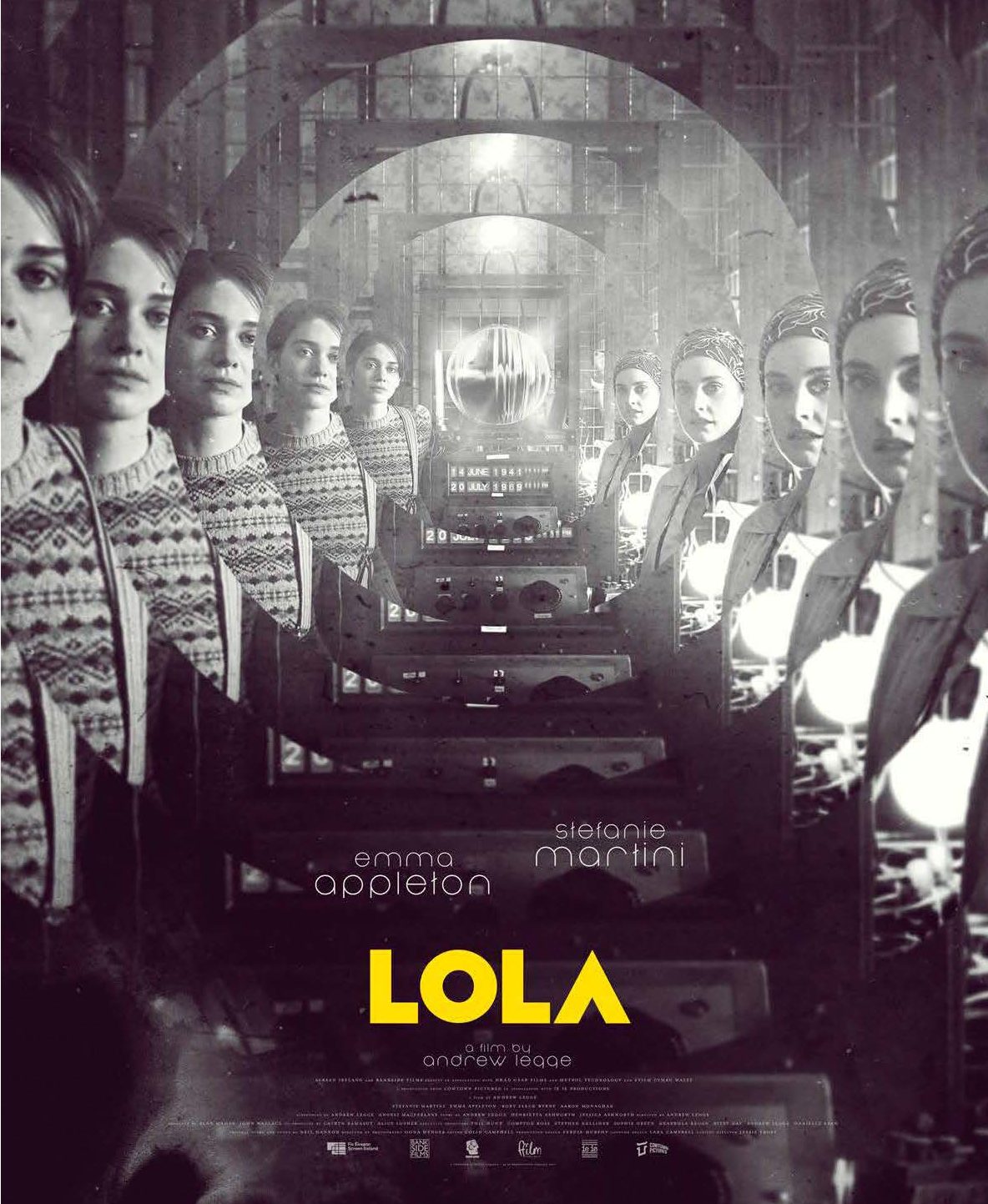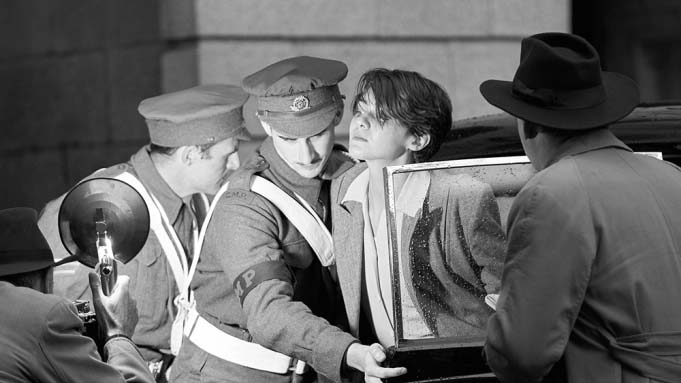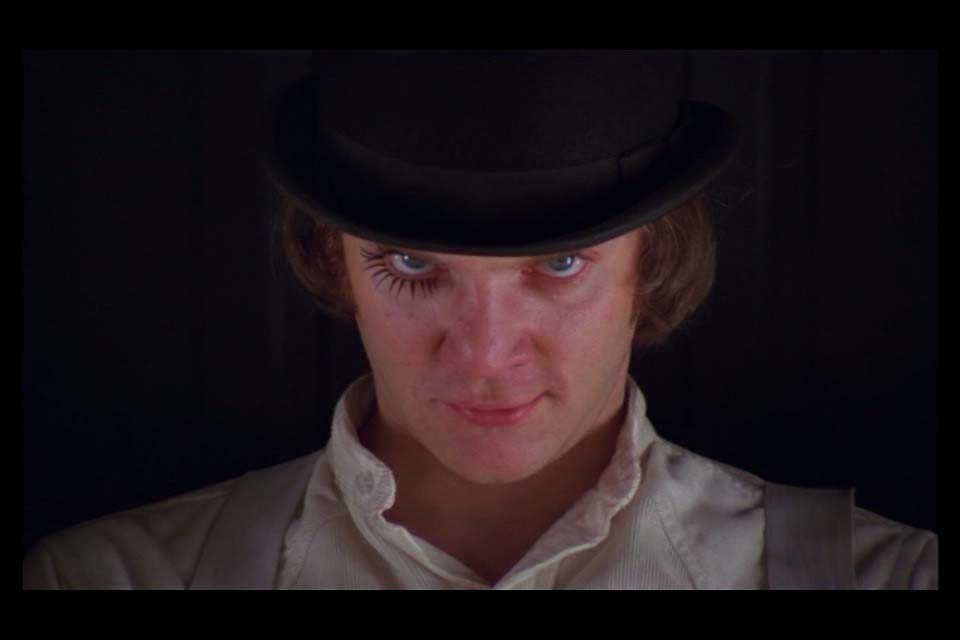- Film And TV
- 06 Apr 23

With Neil Hannon providing the jackboot-tapping score and some of the UK’s hottest acting talent appearing in it, Irish World War 2 sci-film, LOLA, is a must-see. Hot Press meets director Andrew Legge and the man he entrusted Nazi pop duties to.
If somebody mentions ‘Neil Hannon and his Nazi pop from the future’ to you in the coming weeks, fear not, the Divine Comedy leader hasn’t suddenly lurched to the far-right, but is the man responsible for soundtracking Irish director Andrew Legge’s alternate reality World War 2 sci-fi yarn, Lola.
Lola being the apparatus built by two upper-crust sisters, Thomasina and Martha, in their inherited country pile, which can tune in to radio and TV broadcasts from decades to come.
It’s all very benign at first with them becoming extremely early adopters of Bobby Dylan and David Bowie - who you suspect would thoroughly enjoy the premise himself, but soon goes horribly wrong when the army gets involved and they start using their creation to try and thwart Herr Hitler.

If it all sounds rather preposterous, fear not again, because Andrew manages to tell the story in a way that’s as convincing as it is compelling.
Advertisement
“That’s always the challenge with science-fiction – making something fantastical seem believable,” Andrew reflects. “Neil Hannon came on board about six months before we started shooting. What we originally pitched to Neil is that he come up with two fascist pop songs for us. He said, ‘I’ll only do it if I get to write the entire score’, which we were thrilled about.”
Mr. Hannon doesn’t disappoint with the two jackboot-tappers he pens for Lola’s reich ‘n’ roll star, Reginald Watson, sure to be in future BAFTA and possibly Oscar contention.
“‘To The Gallows’ and ‘The Sound Of Marching Feet’ are bothing chilling - but really good pop songs,” Andrew rightly notes.
Thomasina and Martha are respectively portrayed by Emma Appleton, who you might recognise from The Witcher and Pistol – she played the ill-fated Nancy Spungen – and Steffanie Martini who was the lead in the brilliant Prime Suspect 1973 reboot and was back on our screens last month in BBC Brink’s-Mat heist drama, The Gold. How did Andrew manage to land two such in-demand actors?
 Locarno film festival - LOLA.
Locarno film festival - LOLA.“I like to think it was the quality of the script, which our casting director Jessie Frost – she’s worked on things like Rogue One: A Star Wars Story and Black Mirror – sent out to agents,” he laughs. “It definitely helped that Emma is a huge fan of The Divine Comedy. What was attractive for Steffanie was that she was going to be singing in the movie – she also learned to play guitar and a little bit of piano for it – and operating one of the cameras. All of the footage you see of Emma’s character talking into the lens was shot by her to get the eye-lines just right.”
Advertisement
A lot of the story is told through found film footage that Thom and Martha hide in their house hoping that it’ll be discovered by future generations. Andrew went to extraordinary lengths to ensure that it looks the real 1940s deal.
“The camera we trained Steffanie to use was a clockwork 16mm Bolex, which I bought ages ago in Dun Laoghaire and is small enough to hold in your hand,” he explains. “If you wind it up you get thirty seconds for a take. They were used extensively in the Vietnam War because they don’t need batteries or have any electronics that might be effected by extremes of temperature.
“We also showed both her and Emma how to home process for the purposes of the film. I was in Tbilisi in Georgia a few years ago and discovered a Soviet-era developing tank in a market, which we used for that.”
The Kubrick Connection

“Our cinemaphotographer, Oona Menges, has a contact in the UK who had a load of old cameras including ones that had been used in The Mission and The Killing Fields and, most impressively, A Clockwork Orange. Kubrick used it for the scene where Alex tries to commit suicide by throwing himself out of the window so it was a real privilege to use the early 1950s Arriflex 35 mm in question.”
If that doesn’t give celluloid addicts a fix, nothing will! Extraordinary lengths were also gone to by Andrew’s archivist who was charged with going through thousands of hours of period newsreels, both British and German, to find the World War 2 footage that wows as much as those Nazi pop songs do.
Advertisement
“We’d give them a brief like, ‘Hitler’ (on the right) looking excitedly at something (on the left) and they’d come back with footage of him inspecting a prototype Volkswagen Beetle, which got turned into Hitler visiting and reacting to Lola,” Andrew explains. “They kept blowing us away with what they found.”
There’s a great set piece where Steffanie Martini’s character treats a roomful of military brass to a big band rendition of ‘You Really Got Me’, with the title becoming an unlikely “Do you worst, Adolf” war slogan.
“We did that whole scene in a day under strict Covid restrictions, which meant that we could only have fifteen extras dancing,” Andrew divulges. “Looking at it in the edit suite we realised it ran out of steam half-way through, so in a desperate attempt to salvage the scene we came up with the idea of ‘You Really Got Me’ written on the side of a barage balloon hovering over London, and people out in the streets in defiance of the Germans. There was quite a bit of seat-of-the-pants stuff like that – which is maybe what gives the film its edge.”
So You Want To Be A Reich ‘N’ Roll Star?
 Neil Hannon.
Neil Hannon.Chipper at the best of times, Neil Hannon today looks like the cat that’s not just got the cream but the whole dairy.
Advertisement
“I’ve really enjoyed doing the music for Lola,” the Divine Comedy man beams. “I like old sci-fi like Ray Bradbury and Kurt Vonnegut which has humanity at its heart – just like Lola does.
“As a single-minded musician, I like the fact that Andrew is a single-minded filmmaker who wasn’t going to let his vision be impaired by budget. It reminds me of when I was starting out and had no money to make records – whatever problems present themselves, you find a way around them.”
As poptastic as ‘To The Gallows’ and ‘The Sound Of Marching Feet’ are, taken out of context they might be misunderstood.
“I keep thinking, ‘That’s a hit!’ but, yes, I don’t think radio’s going to be playing them,” he rues. “Andrew’s brief was, ‘Imagine that Bowie dies but it’s a fascist state…’ I have a Farfisa – which is halfway between an old home organ and a synthesiser, and sounds weirder the more damaged it gets – that I started mucking around with and gradually the songs emerged.”
I’ve had ‘The Sound Of Marching Feet’s “Report the filthy perverts if they don’t like this song” refrain reverberating around my brain for the last month, but so far have managed not to hum it on the 09.04 Raheny-Tara Street DART.
“Very wise,” Neil nods. Was he disappointed that Andrew cast somebody else as Nazi popster Reginald Watson?
“Actually, he did offer me the role but I said, ‘No’, partly because it was during Covid and I didn’t want the hassle of daily tests and also because I didn’t want pictures of me as a Nazi pop star flying around the internet!”
Advertisement
Neil has also supplied the songs for Wonka, Paddington director Paul King’s reboot of the Roald Dahl classic, which features the superstar likes of Timothée Chalamet, Olivia Colman and Rowan Atkinson. Asked whether it’s undiluted Dahl or revisionist Dahl, Neil neatly sidesteps and says, “It’s undiluted Paul King who’s taken it off in a completely new direction. My old Divine Comedy partner, Joby Talbot, is also involved so it’s been a lot of fun – even though it’s still not completely finished!”
• Lola is in Irish cinemas now.
The new issue of Hot Press is out now, starring The Edge.










